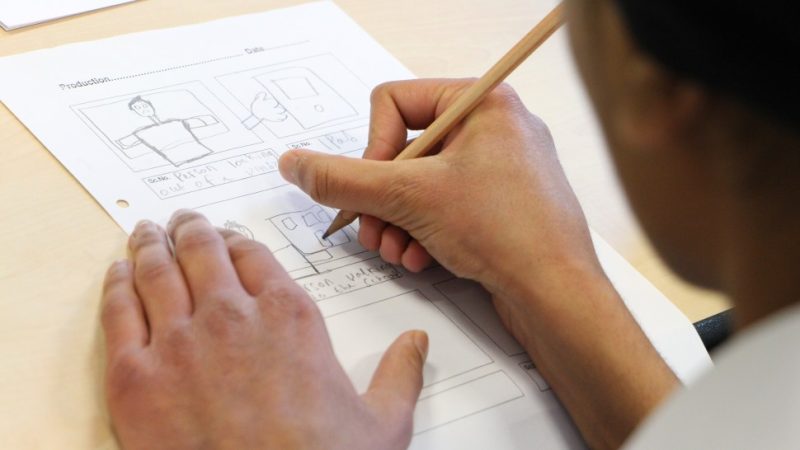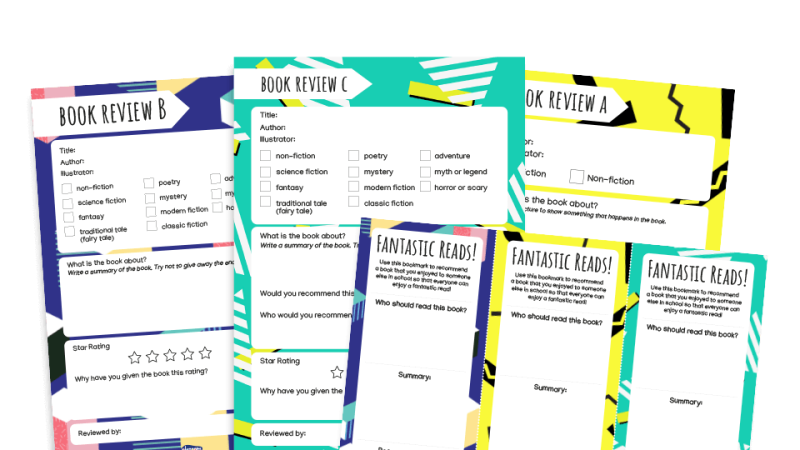Non Fiction November – Best 2024 resources and activity ideas
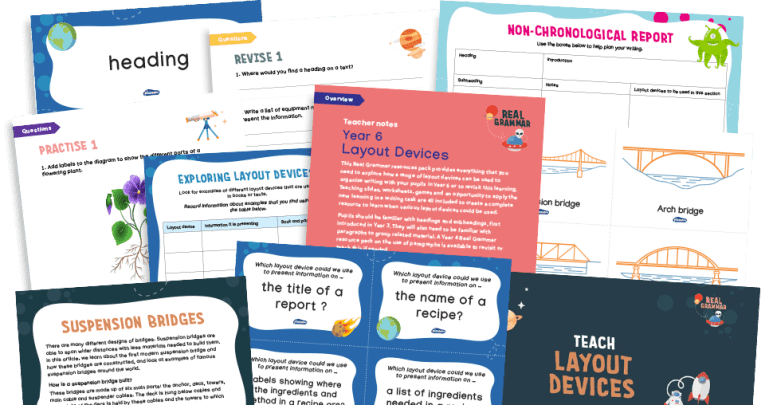
Use November to join in with this annual celebration of the power of non-fiction

- by Teachwire

What is National Non-Fiction November?
National Non-Fiction November is an annual celebration of the power of non-fiction to inspire children and celebrate readers who have a passion for information and facts. It’s organised by the Federation of Children’s Book Groups.
During the month, schools and libraries can get involved by organising and taking part in activities and competitions.
What is the theme for 2024?
The theme for National Non-Fiction November 2024 has yet to be announced. Last year’s theme was ‘Wonderful Water’. Take a look at the Wonderful Water booklist for some great watery titles to inspire you.
Pie Corbett KS2 Non-Fiction Collection
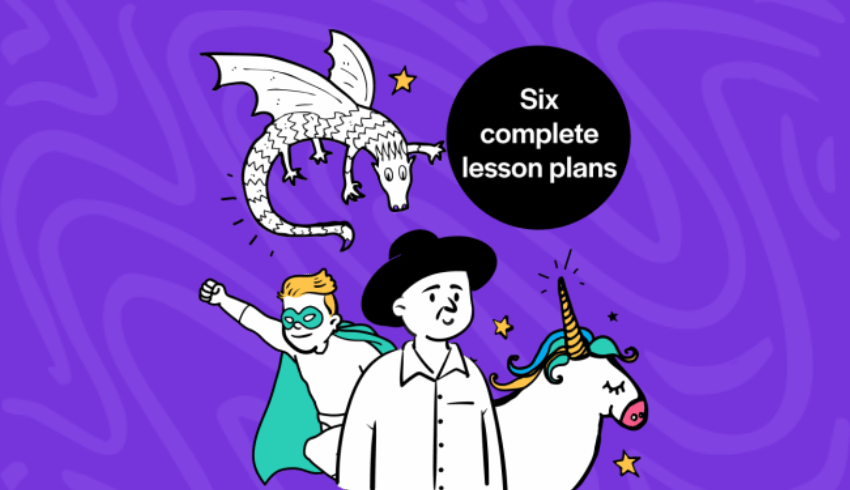
Use this free KS2 non-fiction collection from Pie Corbett to inspire children to get writing.
Each resource contains an original text in Powerpoint form. Plus you also get a PDF full of activity ideas to help pupils create their own non-fiction text. Text types covered include instructions, persuasive writing and non-chronological reports.
Enter a competition
Pupils aged 5-12 are invited to take part in a National Non Fiction November 2023 competition. They need to create a postcard that features a watery location on one side and a piece of writing about why the location is important to them on the reverse. Entries need to be in by 4th December 2023.
Real Comprehension programme for Y1-6
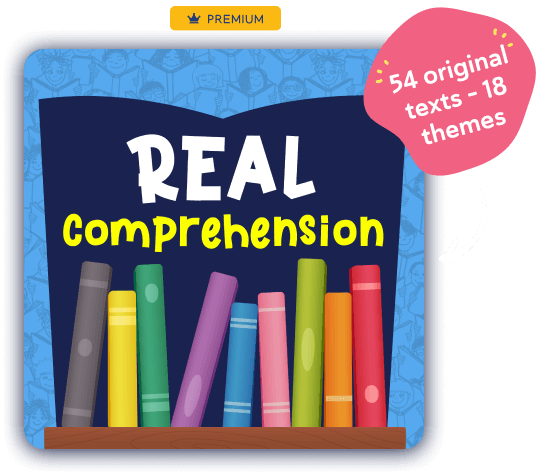
Real Comprehension from Plazoom offers three thematically-linked original texts (fiction, non-fiction and poetry) per year group, per term. Plus you get all the resources you need to explore them.
Published children’s authors have provided all of the texts. They’ll help you to build a deeper understanding through close-reading and guided reading techniques.
Using humour in non-fiction writing
Encourage KS2 pupils to use judicious humour in non-fiction writing, using advice from stand-up comedian, TV presenter and super-space-fan Dara Ó Briain.
The free resources pack from Plazoom has been exclusively created to be used with episode eight of the Author In Your Classroom podcast – a virtual ‘author visit’ you can share with children whenever you like, absolutely free!
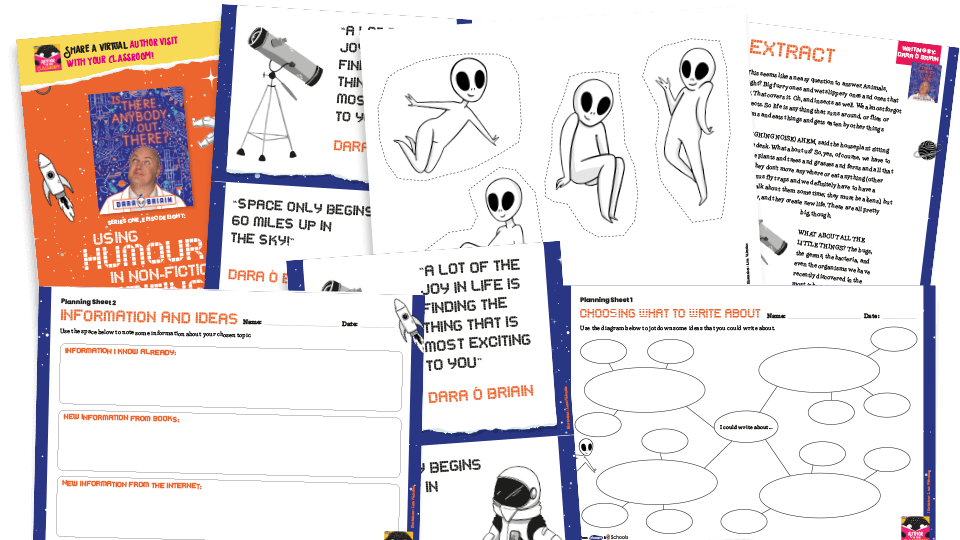
GCSE English non-fiction pack
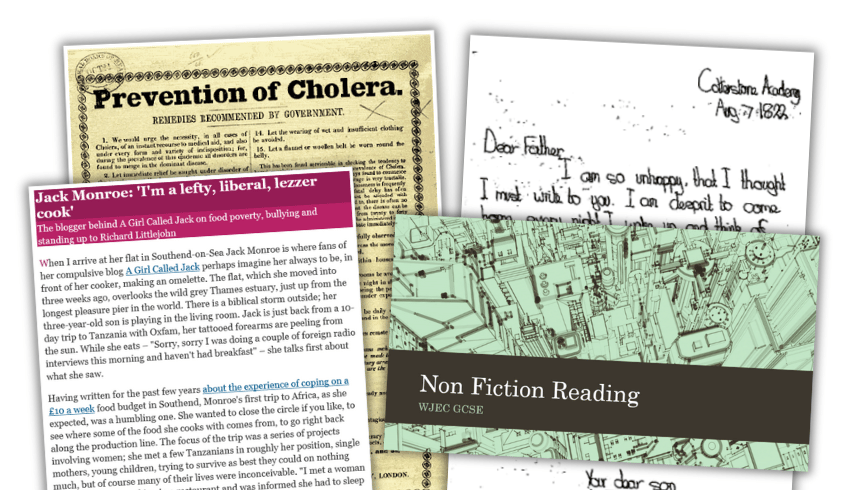
This GCSE English non-fiction texts pack contains a selection of 19th- and 21st-century non-fiction articles. There’s also a PowerPoint to use in the lesson, containing thematic starters and plenaries.
Improve vocabulary with non-fiction texts

In this article by teacher Hannah Rix, you’ll learn how non-fiction books can help develop:
- vocabulary
- spoken language skills
- debates in the classroom.
Hannah covers key classroom approaches, supporting vocabulary teaching and suggests some of her favourite non-fiction texts for KS1 and KS2.
Layout devices for Year 6
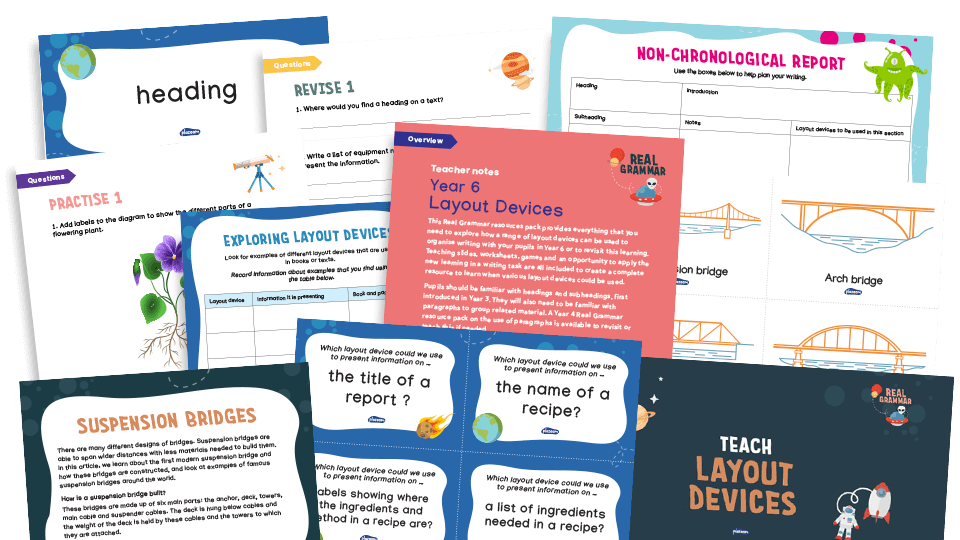
This Real Grammar KS2 resources pack from Plazoom will help your class explore how to use layout devices to organise their writing. It includes teaching slides, worksheets, games and an opportunity to apply new learning in a writing task.
Developing ideas with non-fiction

Join English teacher Chris Curtis as he discusses why we need planning and a willingness to see ideas through to their conclusion if students are to be successful at writing non-fiction.
“Non-fiction is lively, fun, current, sarcastic, passionate and sometimes dangerous”
Recount planning templates
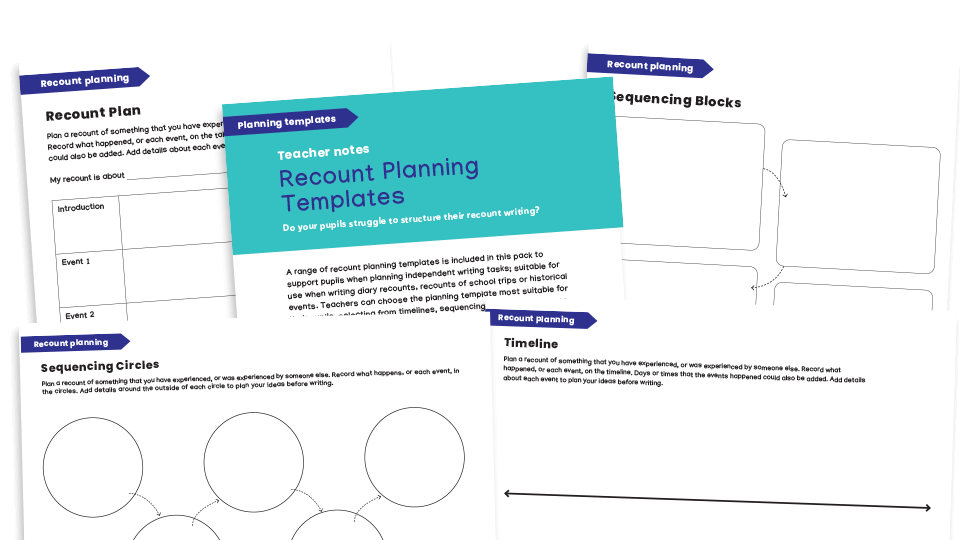
Use this range of recount planning templates from Plazoom to support pupils when planning independent writing tasks such as diary entries and recounts.
Choose the planning template most suitable for your pupils – including timelines, sequencing circles and more traditional table planning sheets.
13 non-fiction books to power up learning
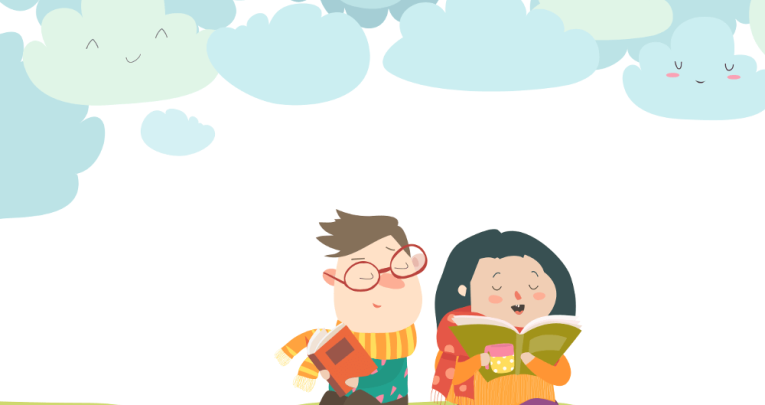
Check out a list of some of our favourite fact-packed non-fiction titles for Early Years, KS1 and KS2. They’ll help to kickstart children’s curiosity and inspire activities in your classroom this November.
How to make non-fiction matter in your classroom

Assistant headteacher Emma Hughes-Evans argues that schools should encourage children to read Playstation manuals as well as Harry Potter. Here she provides ideas for using fiction to inspire non-fiction.
More activity ideas
Scavenger hunt
Give each team or pupil a checklist of different types of non-fiction to find on the shelves of your library or classroom. Alternatively, give pupils a selection of non-fiction books. Ask them to hunt for different text features, such as headings and labelled diagrams.
Pass the parcel
Wrap up a non-fiction title, but add a picture of the cover of another non-fiction book between each layer. As you pass the parcel round, discuss and share each cover. The winner gets to keep the book in the parcel.
Browse a 12-page PDF of activity ideas for National Non Fiction November.








